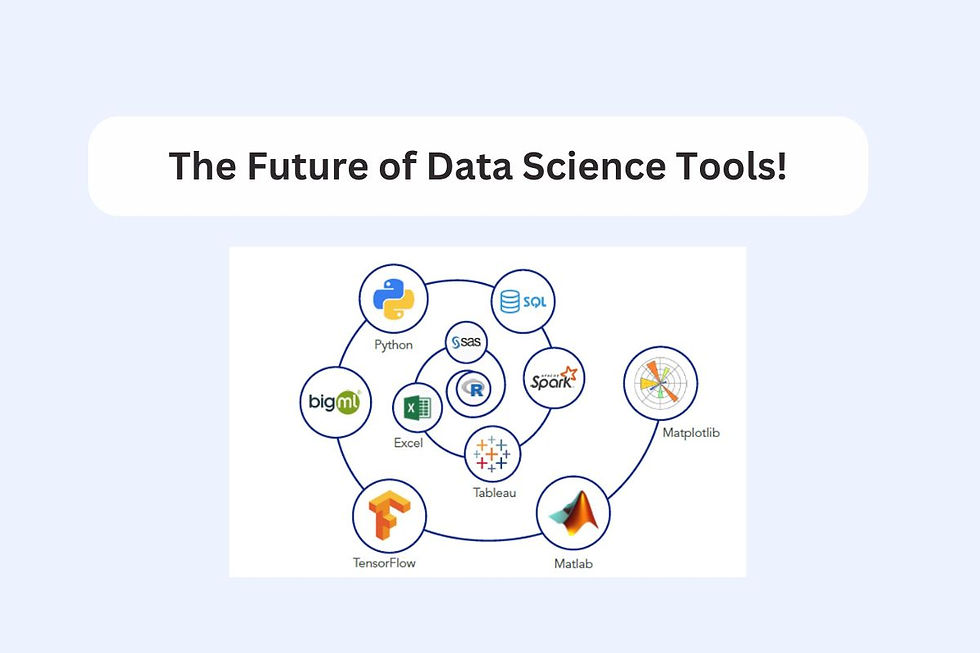10 Essential Java Libraries for Developers
- archi jain

- Feb 1, 2024
- 3 min read
Introduction
Java, a versatile programming language, is widely used for developing various applications across different platforms. Java libraries play a crucial role in simplifying development tasks by providing pre-written code for common functionalities. In this article, we'll explore ten essential Java libraries that can significantly enhance developers' productivity and efficiency.
What Are Java Libraries?
Java libraries are collections of reusable code modules that offer a range of functionalities to developers. These libraries provide ready-made solutions for common programming tasks, such as data manipulation, network communication, and user interface development.
Why Are Java Libraries Essential?
Java libraries are essential for developers as they help streamline the development process, reduce coding efforts, and improve code quality. By leveraging existing libraries, developers can focus more on solving specific business problems rather than reinventing the wheel for basic functionalities.
Apache Commons Lang
Apache Commons Lang is a popular Java library that provides a wide range of utility functions for common programming tasks.
Overview
Apache Commons Lang is a powerful library that extends the core Java language with additional features and utilities.
Features
String manipulation: Apache Commons Lang offers various methods for string manipulation, such as substring extraction, concatenation, and case conversion.
Array manipulation: The library provides functions for working with arrays, including sorting, searching, and cloning.
Exception handling: Apache Commons Lang includes classes and methods for simplifying exception handling in Java applications.
Use Cases
Data processing applications
Web development projects
Enterprise software solutions
Google Gson
Google Gson is a versatile Java library for serializing and deserializing Java objects to and from JSON format.
Overview
Google Gson simplifies the process of working with JSON data in Java applications by providing a straightforward API for converting Java objects to JSON and vice versa.
Features
JSON serialization: Gson automatically converts Java objects into JSON strings, making it easy to transmit data over the network or store it in files.
JSON deserialization: The library can deserialize JSON strings into Java objects, allowing developers to reconstruct complex data structures with ease.
Customization options: Gson offers various configuration options and annotations for fine-tuning the serialization and deserialization process.
Use Cases
RESTful web services
Mobile app development
Data interchange between client and server
JUnit
JUnit is a popular testing framework for Java applications, allowing developers to write and execute unit tests with ease.
Overview
JUnit provides a simple yet powerful framework for writing and running automated tests for Java code.
Features
Annotation-based testing: JUnit supports the use of annotations to define test methods, setup and teardown routines, and test suites, making test code more readable and maintainable.
Assertion methods: The framework includes a variety of assertion methods for verifying expected outcomes, such as assertEquals, assertTrue, and assertFalse.
Test runners: JUnit offers various test runners for executing tests in different environments, including IDEs, build tools, and continuous integration servers.
Use Cases
Test-driven development (TDD)
Continuous integration and deployment (CI/CD)
Quality assurance (QA) testing
Log4j
Log4j is a robust logging framework for Java applications, enabling developers to generate detailed log messages for debugging and monitoring purposes.
Overview
Log4j provides flexible and customizable logging capabilities for Java applications, allowing developers to record important events and errors during runtime.
Features
Hierarchical logging: Log4j supports hierarchical logging configurations, allowing developers to define different logging levels for different components of their applications.
Configurable appenders: The framework offers a wide range of appenders for directing log messages to various destinations, such as files, databases, email, and the console.
Logging contexts: Log4j supports logging contexts, enabling developers to attach contextual information to log messages dynamically.
Use Cases
Application troubleshooting
Performance monitoring
Security auditing
Jackson
Jackson is a high-performance JSON processor for Java applications, offering efficient data binding and streaming capabilities.
Overview
Jackson provides fast and reliable JSON processing capabilities for Java applications, making it easy to work with JSON data in various formats.
Features
Data binding: Jackson supports automatic conversion between Java objects and JSON data, eliminating the need for manual parsing and formatting.
Streaming API: The library provides a streaming API for processing large JSON documents efficiently, without loading the entire document into memory.
Annotation support: Jackson offers annotations for customizing the serialization and deserialization process, such as @JsonProperty and @JsonCreator.
Use Cases
Web services
Message serialization
Data interchange formats
Guava
Guava is a comprehensive Java library developed by Google, offering a wide range of utilities for common programming tasks.
Overview
Guava extends the capabilities of the Java core libraries with additional functionalities and convenience methods.
Features
Collections: Guava provides enhanced collection classes and utilities for working with collections more efficiently and conveniently.
Concurrency: The library includes classes and utilities for writing concurrent code in Java, such as ListenableFuture and RateLimiter.
Utilities: Guava offers various utility classes for string manipulation, IO operations, and hashing.
Use Cases
Multithreaded applications
Data processing pipelines
Performance-critical applications
Spring Framework
The Spring Framework is a comprehensive Java framework for building enterprise-level applications.
Overview
Spring provides a comprehensive programming and configuration model for modern Java-based
Conclusion
In conclusion, mastering these 10 essential Java libraries can significantly enhance a developer's toolkit, streamlining development processes and improving code quality. For those seeking to deepen their expertise, a comprehensive Java training course in Chandigarh offers invaluable hands-on learning opportunities to harness the full potential of these powerful tools.








Comments